Baldur's Gate 3 Review
Roll high through a world of possibilities
While the RPG genre has always enjoyed success, it has adapted a more streamlined and action-focused approach in recent decades. Simplification of the core mechanics always leads to bigger audiences, but it also loses a bit of the breadth and level of detail that the older games were known for. cRPGs have been making a comeback in recent times though, with franchises such as Wasteland, Dragon Age, and Divinity: Original Sin finding success. Earlier this month, arguably one of the best known classic turn-based RPG series has made its return. With Baldur's Gate 3, experienced developers at Larian Studios have not only produced yet another great game, but one of the best this year.
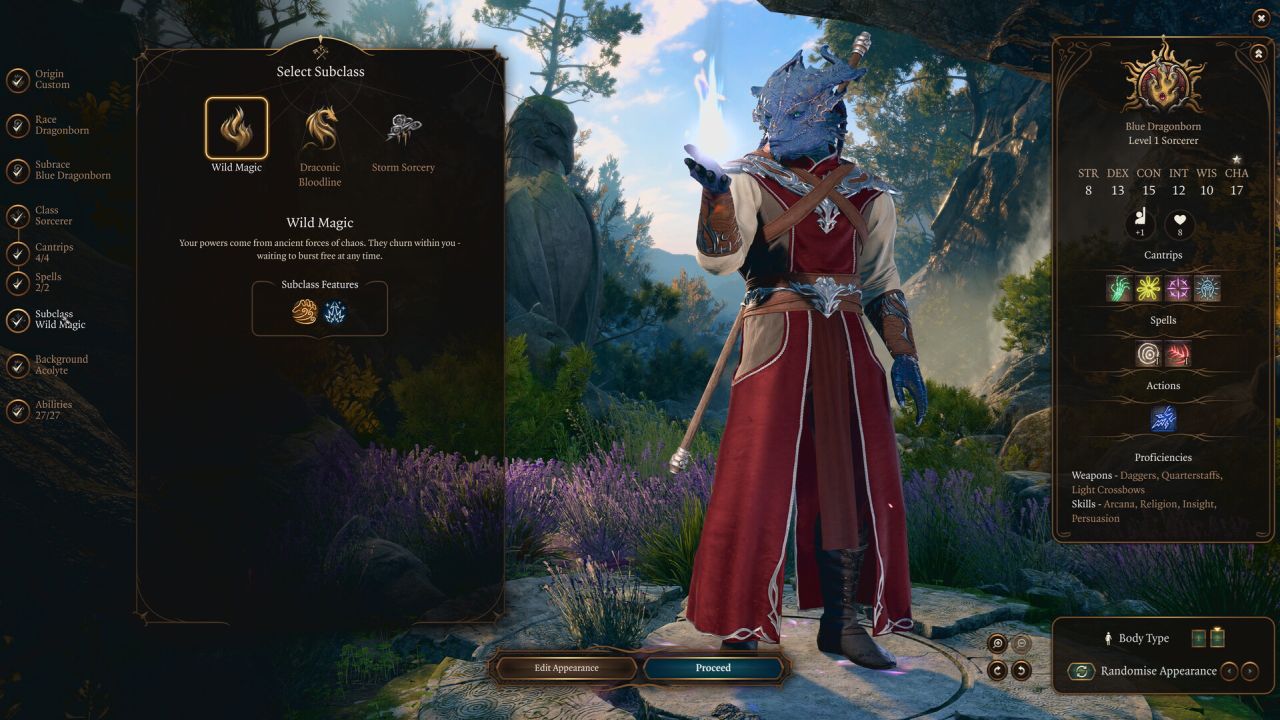
Before setting out on this grand adventure, players will need to select their avatar. You can create a custom character, or use of the few pre-made ones that play a key role in the narrative. They also serve as good templates for skill allocations to fill a particular role. For a custom character, players can choose from an assortment of races and subraces - Humans, Dwarfs, Elfs, Githyanki, and others; and a selection of 12 character classes – from Sorcerers to Rangers, Druids, Barbarians, and Bards – with additional subclasses in each, with the added potential to multiclass. These picks combine to define your character's abilities and stats (the usual strength, dexterity, intelligence, and so on), and you can also of course customize gender and visual appearance. You will also have to decide on various perks and special abilities, of which there are too many to mention, but they include things like being lucky, proficient in specific types of weapons, having special use passive skills like buffs against specific enemies or seeing in the dark, and so much more. While the extensive possibilities to come up with an adventurer that best suits your style of play may seem quite overwhelming, the game does allow for re-speccing during the campaign, so you are not locked-in if you later change your mind.
Baldur's Gate 3 has an intriguing opening. As an average citizen of the magical world, you have been captured by a mind flayer on a flying ship. And while the local defenders attack and chase the invader away, it is too late for you – the mind flayer has planted an illithid tadpole into your brain that will eventually take control and transform you into a mind flayer as well. However, the ship has sustained damage, and you as well as a few others manage to escape before it comes crashing down. After surviving the ordeal, you find yourself in an unfamiliar land. Thus begins the adventure of finding out what can be done to remove the tadpole from your head before it's too late.
Trying to find a cure for your new brain friend is the central plot point, but it's of course only the beginning of the many adventures and narratives that players will get to experience. It turns out that the mind flayers have planted an illithid tadpole in a ton of people, who can now telepathically communicate with each other, as well as something called The Absolute, which they believe to be a new god. Somehow, you are able to resist the call to become a cultist, and neither are you transforming into a mind flayer yet – but, you can still use the tadpole's ability to communicate with others and even intrude into their thoughts, but so can they into yours. This main telepathy narrative thread is very engaging and adds a new layer of storytelling possibilities.
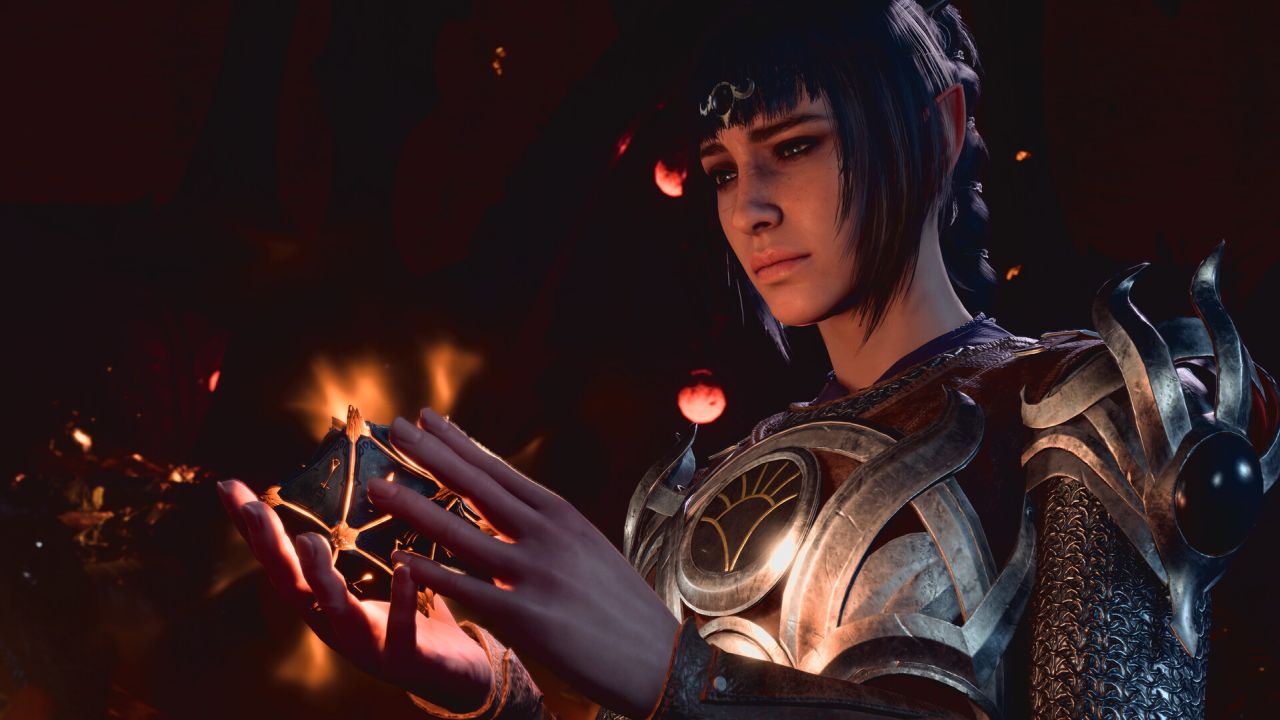
Mind invasions aside, this fantasy land has a typical assortment of problems that players will encounter and be invited, or forced, to participate in. From ancient mysteries, to local civil strife and contracts with devils, there is plenty for a hero to do, and all roads seem to lead to the city of Baldur's Gate. The various quests and narratives are by far one of the game's strongest points, with hundreds of hours of dialogue mostly excellently written and voice acted. It's great to see the writers sticking to the setting and not going for the overused Marvel quips, cursing, and modern slang. From the main story to the optional side quests, every adventure big and small leads to interesting discoveries and unexpected lore. Almost every encounter and conversation feels interesting, and you really want to see where each narrative thread goes next and how it may end, which very few games these days are able to achieve. And even further to that, the game uses a narrator voiceover to describe scenes, characters, and situations, which adds an unexpectedly great angle to the storytelling.
You won't be alone on these escapades, as a team of four is needed to face the tough road ahead. Like any RPG worth its salt, your companions are all interesting members that have a lengthy quest line and decisions that need to be made. Lae'zel is a fellow mind flayer ship escapee who is driven by a code of her people and only chooses to adventure together due to the common goal of getting rid of the parasite in your heads. Shadowheart is a follower of a dark god whose devotion seems blind and perhaps misguided. Karlach is a Tiefling freshly escaped from Hell that may have a limited time to live, and Wyll signed a contract with the devil that may cost him everything. All members of your party have interesting backgrounds, and the more time you spend together the more you may care about their fate. They also offer some unique dialogue as you meet story characters along the way that they may have history with.
Strong player choice mechanics also play a huge role in how engaging the story is, with so many dialogue options and action selections resulting in tons of possible outcomes. It's truly impressive to think of how you would handle a situation in reality, and the game actually having this option. And even if it doesn't, the simple fact that it made you think of the possibilities is an indicator of how high the bar is set by the game. It also leads to immense replay value. You'll have to decide how to deal with problems that don't have an obvious right or wrong answer, choices that are not without sacrifice, and how much time you will spend in combat. Being able to talk your way out of fighting is always appreciated, and BG3 lets you do that with aplomb.
However, the excellent player freedom comes at a cost of being able to lock yourself out of quests, by either selling or ignoring a critical item (they often have vague descriptions), failing a conversation choice, not meeting the correct NPC or completing quests out of "optimal order." The former is a problem throughout, as you can miss possible companions and quests, and the latter becomes a real headache in the second half of the game as you may stumble upon locations and situations before the game intended. While things may resolve somehow, it also often results in broken quests and dialogue that doesn't make sense given what your character and others should know about. The adventuring freedom is impressive, but there aren't enough checks and balances to prevent players from soft-locking their progress, being unsure if it's a bug or the game is being too vague on where to go next and you simply missed something. The final act in particular suffers from trying to tie up all the narrative threads as well as introduce new ones, which doesn't always work out. The story also ends without a satisfying epilogue, that's quite disappointing after such a long journey.
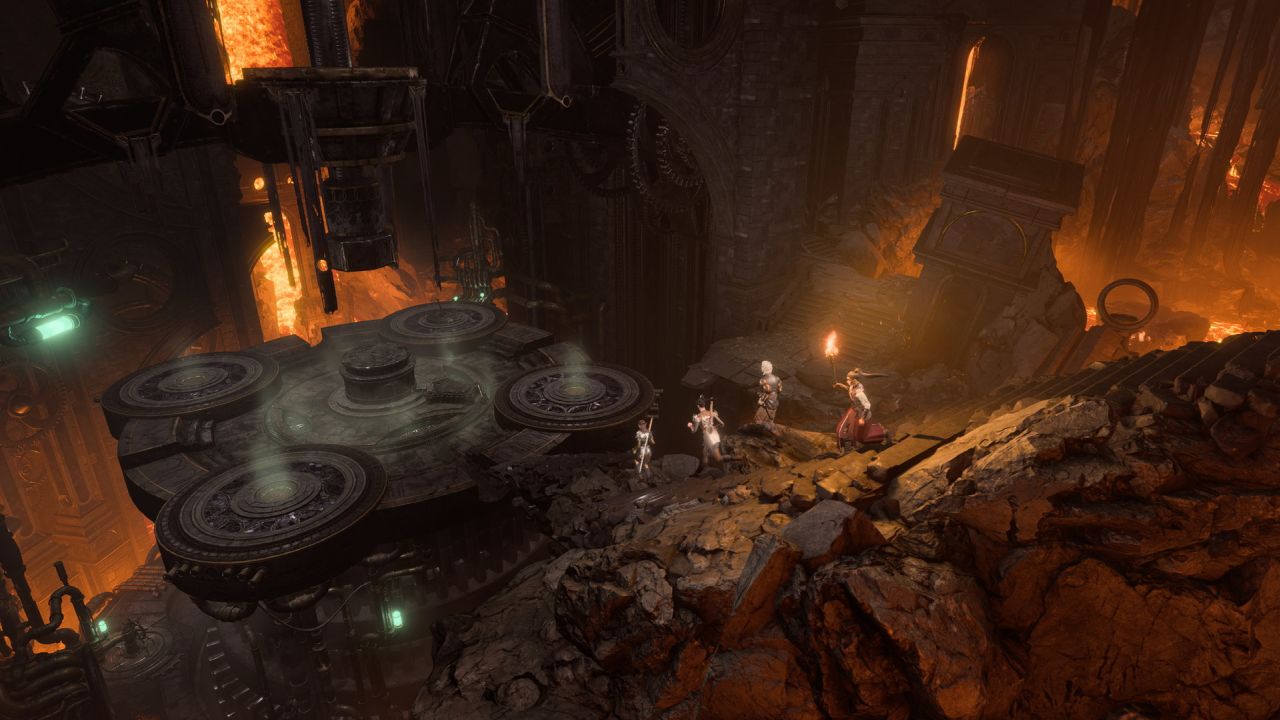
The above is actually par for the course for developers Larian Studios, whose previous cRPGs in the Divinity Original Sin series had very similar problems at launch. The lack of a satisfying epilogue, the increasing issues with gameplay and quest bugs in the second half of the game (because the first act has been polished to a sheen due to being in public Early Access program over the years), and so on. Returning players will certainly be well versed in these launch hiccups. In our experience, we've definitely had the most performance, quest, and interaction bugs in the second half of the adventure; thankfully, nothing that was not fixed by reloading an earlier save. But if history is anything to go by, the developers will likely continue to furiously address problems (as they have already in the opening few weeks), and we'll probably see some kind of Definitive Edition of BG3 in the next few years with major player suggestions addressed. So for now, the game is slightly less refined the deeper you venture in, but it's a great journey nonetheless.
You'll want to explore and chat with most NPCs you meet across the three main acts of the campaign from the typical isometric third person camera, though one that can be adjusted with zoom and rotation, as well as relatively free movement around the level. This lets you enjoy a better view on some of the fantastical locations you'll explore, from dark caverns, lush forests, and sunny riversides, to industrial factories and grotesque flesh covered ships. The art style is very good and fitting for a fantasy RPG, with nice character designs and wondrous temples and groves. Atypical of cRPGs, the dialogue scenes are fully animated, adding to the immersion. UI is well designed and clean, with an expandable toolbar that provides a few different views on the available items and skills. The audio effects in combat are meaty, and the background sounds of the idle world are soothing; the soundtrack is a great fit for when it kicks up. The animations and textures are of good quality, though of course they won't match the high-end budgets of games such as Diablo 4.
Almost immediately after venturing out, you will come face to face with the game's main mechanic of die rolls. Everything in the game is guided by roll of the 20 sided die, which is a common mechanic for real life D&D gameplay, but an aspect that rarely makes appearance in video game adaptations. The vast majority of video game RPGs use a skill system that define the success of an action, whether in combat or dialogue. If your skill is high enough, you get to perform the action, simple as that. But in Baldur's Gate 3 (which uses DnD 5e ruleset with some modifications), the outcomes of key actions are tied to literal die rolls. For example, if you want to intimidate a character in dialogue, you roll the die in-game and see if it succeeds; your character's charisma ability acts as a boost to your number result, not the definitive skillcheck. You could have a level 15 charisma, but if you roll a 1, that's not enough to pass the 20 score check. Casting special spells or lockpicking a door, you keep rolling, and even if your stats in the category are maxed out, you can still roll a 1 and fail. There are aspects beyond your character's stats – such as potions, special class skills, and spells – that can boost your success, and mechanics that also let you re-roll to try and get a better outcome. However, the die-rolling RNG is a central aspect to the whole experience, and while it's always exciting, it's something very new to players who are only familiar with traditional video game RPG experiences and may not be to everyone's liking.
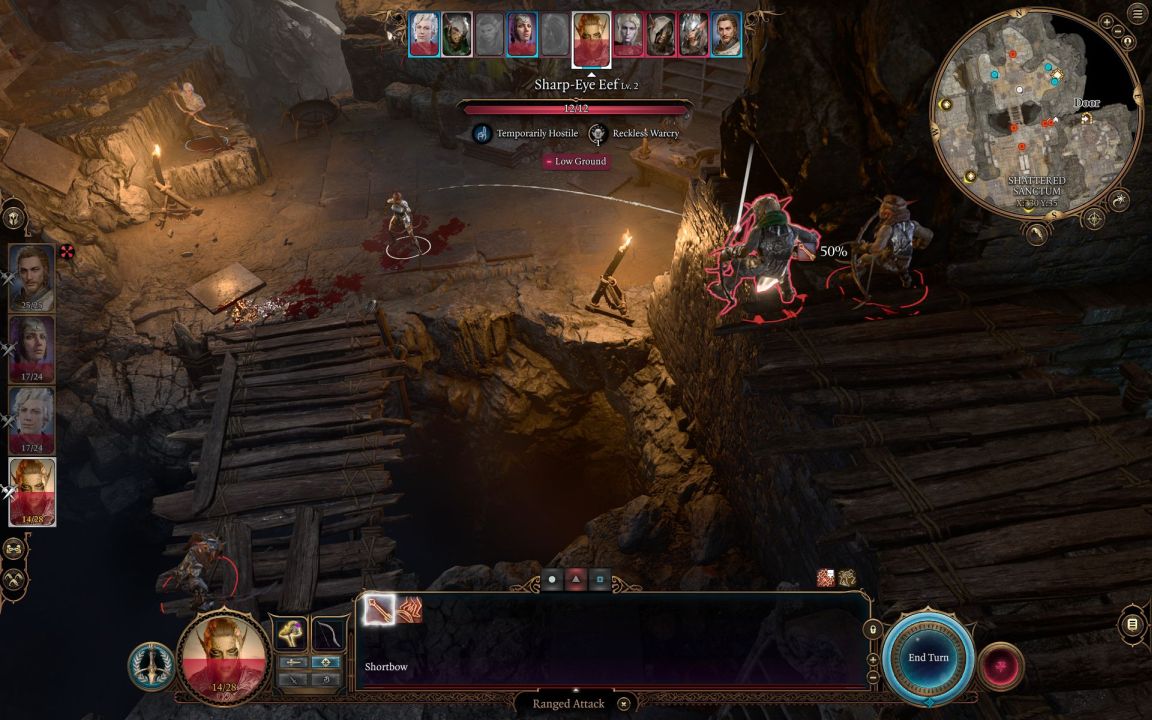
This design leads to other aspects of the game being quite different to the video game norms. For example, levelling up only happens every few hours, and the cap is level 12. With each increase, you may be able to select new spells or abilities, or very little other than your health may change – especially for non-spellcasters, which may lead to a dull end-game levelling. This also directly correlates to loot; there are no level requirements, and the game doesn't overwhelm you with constant gear drops. You very quickly begin only looking at the color-coded rarities of items and special attributes, as damage numbers seldom change. You don't even start finding capes to equip until the second half of the campaign. The party could have the same gear equipped for many, many hours of adventuring. One upside with the limited loot is, you should rarely run into problems with weight and overburdening your characters, even if you explore and pick up everything in sight. Another upside is not having to deal with inventory management too often- the sorting options are of limited use and inconsistent, and while the game highlights items when they are new, that indicator clears by a simple (and often accidental) momentary mouseover, which leads to possibly missing reading important notes or books.
The carefully designed physical world of Baldur's Gate 3 is another interesting surprise. All characters have actions that you don't really get or pay attention to in most games but here they are critical – such as manual jumping, being able to pick up and throw almost anything, shoving, entering stealth, and more. There is gear and potions that boost these abilities, and offer effects like reducing fall damage, flying, teleporting, and more. This opens up a multitude of new options in exploration, puzzles, and combat. There are so many ways of interacting with the world and its inhabitants, that you might keep forgetting about the multitudes of options – like scrolls and potions to read minds, becoming invisible, applying poison to weapons, ability and resistance enhancements, talking to animals, talking to dead people, and many more. You can split the group and control each member party separately, which gives yet another angle to consider in exploration, dialogue, and combat. It's a world teeming with interaction possibilities.
The world feels fairly alive, with a decent amount of NPCs around, and a nice teleportation system lets you travel between discovered waypoints, providing a nice sense of progress to the exploration without backtracking. The notable loading times only crop up when loading in for the first time; in-world travel is usually near instant. All of the major quests eventually lead to the key locations of each act's standalone semi-open world maps, which are dense and very well designed to encourage exploration and offer multiple traversal paths. Puzzles are very infrequent and not really a focus of the gameplay.
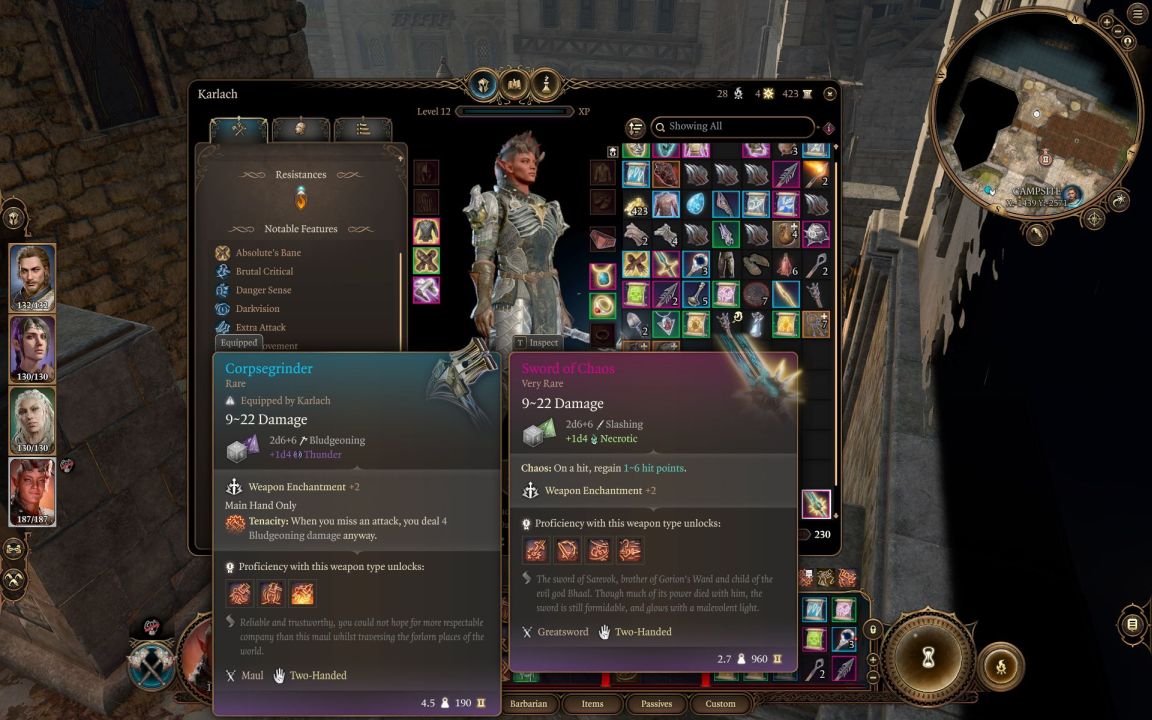
What is the focus is the turn based combat. Like many cRPGs of the modern area (and those from developer's previous efforts), you will often be forced to solve problems with fighting. And while as mentioned, much combat can be avoided (even boss fights), there is still a ton of hacking and slashing to do. Combat usually means you've encountered an enemy and the game switches to turn-based mode, where each round the participants of both sides can move a certain amount, and perform one or two attacks/abilities/actions. Combat can happen in all sorts of locations, though the basics remain the same – avoid bunching up, have healers in the group, and hope for some fortune with the combat die rolls. Every action has a success rate percentage shown, and so you can adjust your attacks and spells based on that information. Even at higher-rated rates though, the attacks can still miss for both you and the enemy, and this can have large implications for the rest of the encounter. It's sometimes better to take a 50/50 crossbow shot with your melee character, than have him waste a turn to close down to within melee distance of the enemy, which can snowball to winning or losing the fight. The results rely on other calculations in the background – like individual character resistances to specific damage types, via their gear, spells or potions.
Depending on the class composition of your party, you can have the traditional melee and ranged fighters/casters, but it's important to have weapons of both types equipped on everyone. Your weapon arsenal includes the usual assortment of swords and hammers, shields, bows and crossbows, daggers, and so on. Any class can use any weapon, but if they are not proficient with it, performance will be degraded. As weapon rarity increases, you will start getting passive bonuses or skill attacks from that weapon that help expand your arsenal. It's particularly important for non-casters who don't have many inherent spells to fall back on; though everyone can use one-time scrolls that they have stashed away. Spellcasters can enjoy unlocking a lot of different spells as they level up, from the healing of the clerics to the animal transformation ability of the druids. Having a caster is important for late-game encounters where enemy numbers grow exponentially, and AOE skills are extremely limited for the melee fighters.
The turn based tactical battles can be quite engaging and very challenging, even on medium difficulty. Thanks to the RNG die-rolling that happens in the background of every attack, things can go very well or very poorly. Of course, smart play and taking your time with each move like you're playing a deadly game of chess, will most often result in victory, but it is never guaranteed. Players need to worry about different conditions - like curses, blindness, water, fire, poison, and others. You and enemies can be clever and shove each other off cliffs and into the abyss, with frequent opportunities for that. Other environment aspects that affect combat can include explosive barrels, unstable platforms and bridges, and more.
Still, the combat encounters begin to feel like a serious grind and difficulty spikes appear quite notably in the second half of the game, where some balancing is seemingly needed. You may often find yourself in a fight where you are at a huge disadvantage either from the starting position or due to some very back luck with all enemy hits landing and none of yours. These "bad RNG" moments can happen quickly, or they can happen at the very end, causing you to restart an entire 20-minute battle. On a few fights, it may take an hour worth of attempts to emerge with a winning strategy and luck on your side. While you can technically escape from some fights, it's an awkward mechanic to use. If the entire party wipes, you have to reload an earlier save – which could be a problem. In our 60+ hour campaign, almost 20% of in-game time was spent on retrying combat and loading earlier saves, on normal difficulty.
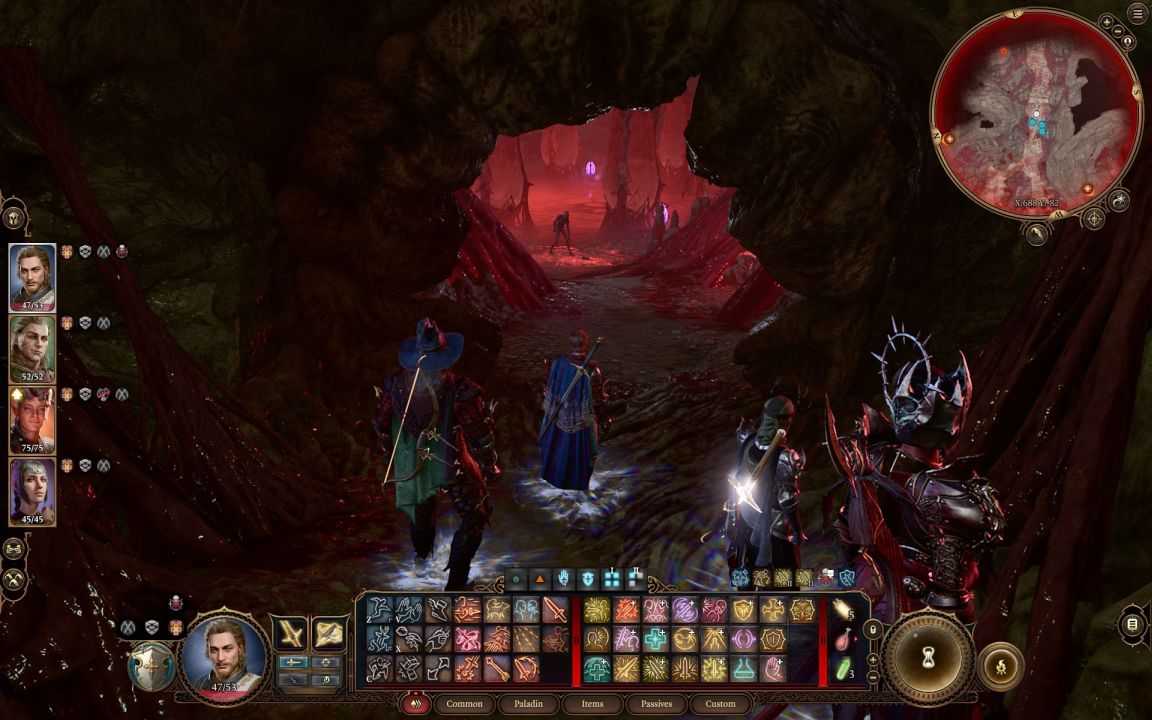
Given how quickly things can go wrong and with the die-roll RNG controlling so much of the experience, it's shocking how rarely the game autosaves. While you may not be a fan of save-scumming or quicksaving often, you have little choice in BG3. A bad-luck encounter can quickly wipe your party, and you could lose 30+ minutes of previous story and adventuring progress. With the second half's gameplay and quest bugs, saving often is pretty much a requirement. It's surprising that you can face a game-over screen anyway, given how little consequence a companion death actually carries. They can be resurrected immediately with a scroll, or later at your base camp, with no penalties; so why end-game the players when they lose a battle? The level of annoyance further grows when you're faced with game-over screens from failing some awkwardly designed one-offs, such as battles you must win or escape within a turn limit, or deadly navigation puzzles.
If you're struggling in a combat room or have lost too many companions, it's probably time to return to camp. The camp is an isolated location where you can manage your party and loot – though some streamlining is much needed here, as to swap party members you have to run around to their tents one by one and talk to them. The camp also has a character that can resurrect any dead companion and also lets you fully re-spec either yourself or any party member to any class you want. This flexibility is very welcome, and doesn't cost much; as an aside, having enough gold is rarely an issue. Selling loot to vendors nets good profits, and while some items are super expensive at vendors, with the limited loot, you can wait or buy - confidently knowing you may not get anything better for hours to come. You also need to have enough Supply (typically food) to rest for the night at camp, but again this is never an issue and you should have plenty from adventuring. Another mechanic that is rarely needed is the Alchemy system; you can discover recipes and craft potions for different conditions, weapon coatings, and resistances from raw materials - but you loot plenty and can buy more for cheap to never have to mix indigents yourself.
Resting at camp is a key mechanic because it also refreshes party members' skills – a lot of the most powerful abilities can only be used once per day, which means you are forced to take pauses in exploration to return and rest. This design encourages decently frequent returns to camp, as otherwise you increase risk and combat difficulty by having fewer spells. Thankfully, you simply teleport to and from camp at any time (outside battle), to the exact same spot in the open world, so there's no need to run back from a waypoint. There's also an option to take a partial rest instantly, without returning to camp/advancing the day. This mostly serves to replenish lesser skills and also restore the party's health, rather than waste potions.
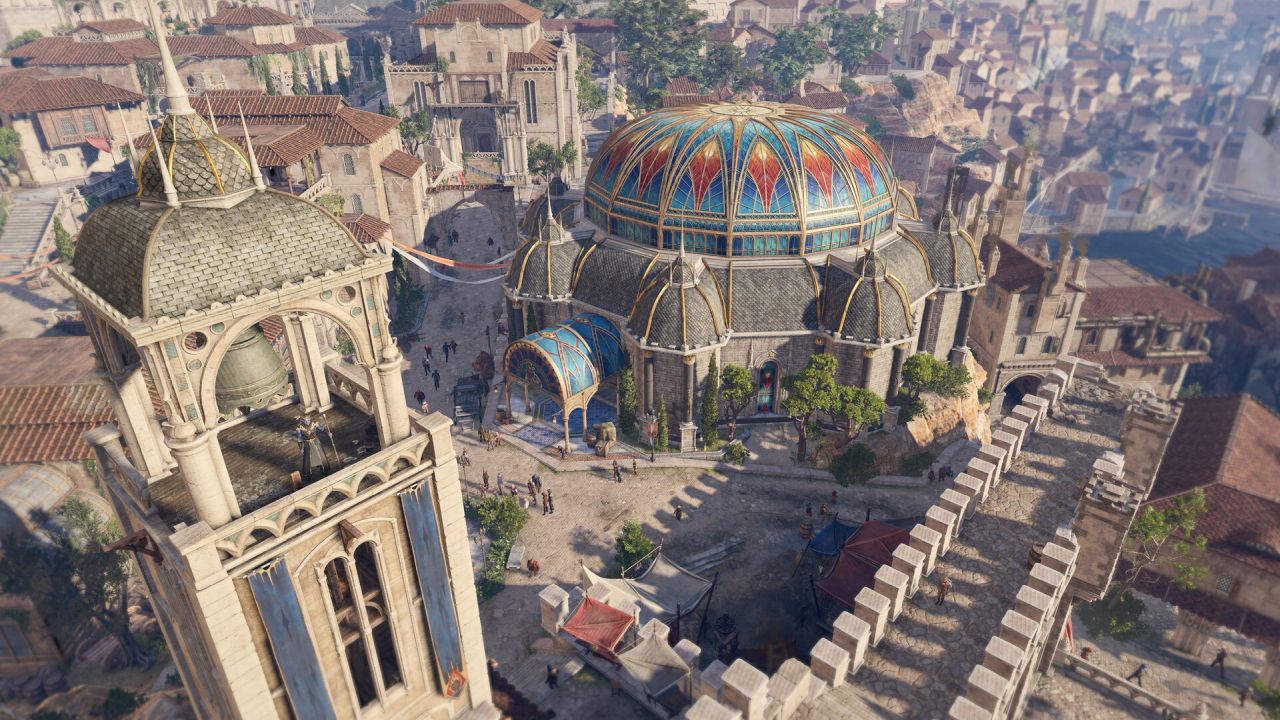
With the resurgence of D&D in the public spotlight in recent years, you are probably interested in trying the game with your friends, like a virtual tabletop experience. Multiplayer is available, but it has a host of issues and bugs that we've encountered, so it's probably worth waiting for a few updates. Players can drop-in and take over a character in their friends' ongoing adventure, or you can start a new campaign together if you wish to use custom characters. As you can imagine, progress can be slow, as players take turns or wait for others to participate in dialogue, and fight together. It can be fun, but like other turn-based games such as Civilization multiplayer, it requires a serious level of patience and strong commitment of involvement from all participants.
Baldur's Gate 3 has been a long time coming. You need not have played the originals back in the 90s to know the cult status that they hold in the RPG gaming community. And to that end, Larian Studios has created a more than worthy successor. It's simply a great cRPG – it may not break any new ground, but it delivers on a fantastic story, with deep mechanics, interesting characters, challenging combat, and enormous replay value thanks to extensive player choices. Its die-based systems feel fresh for the video game space, and while not everyone will enjoy the steep learning curve and the lack of polish in the second half of the adventure, this is nonetheless one of the best and most engaging games to release this year.
 Comments
Comments

















